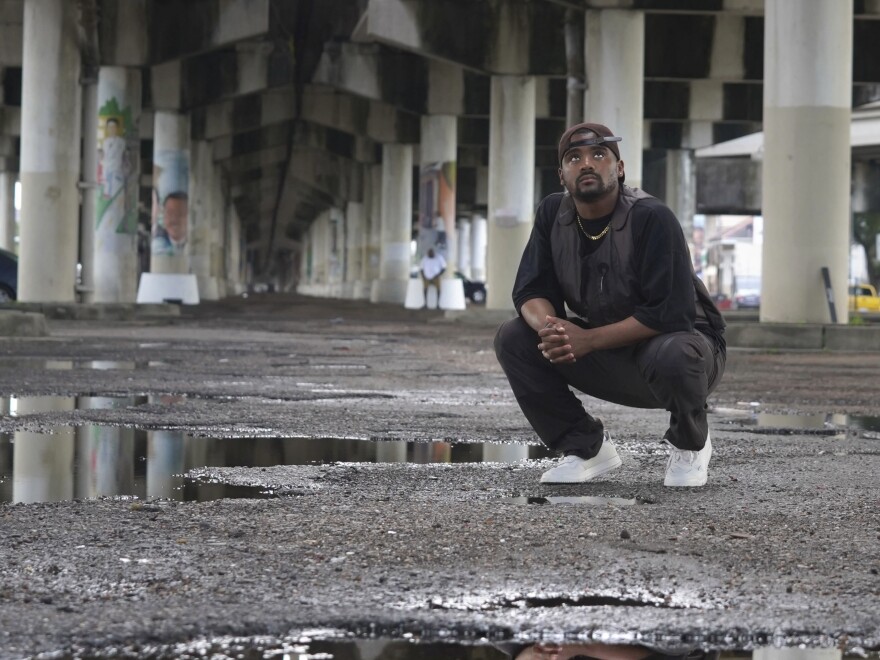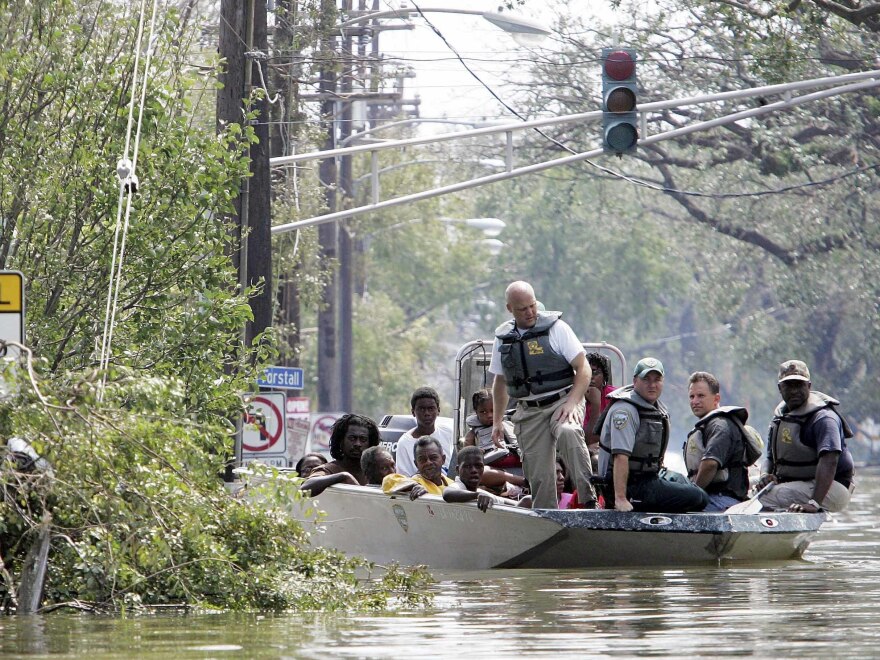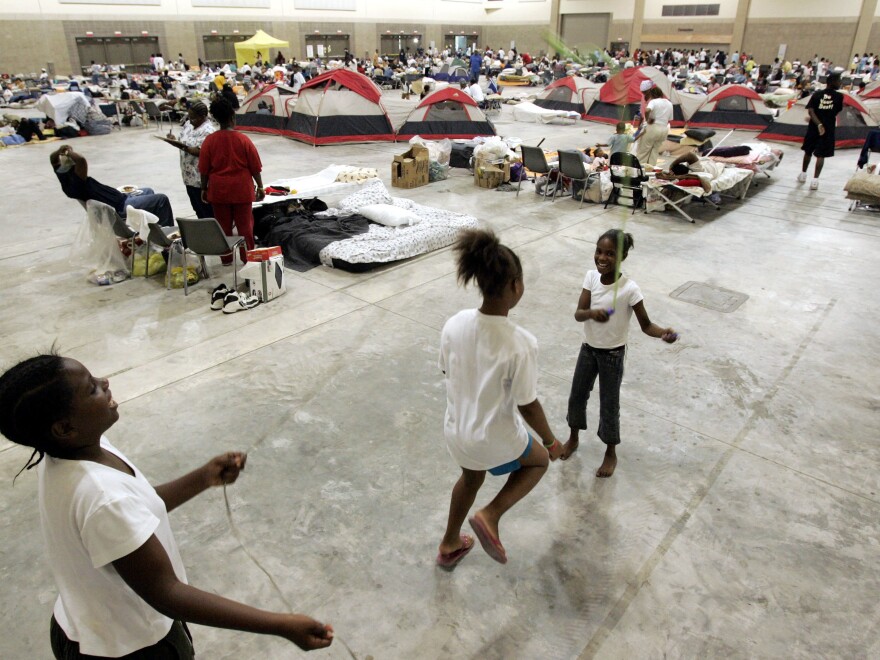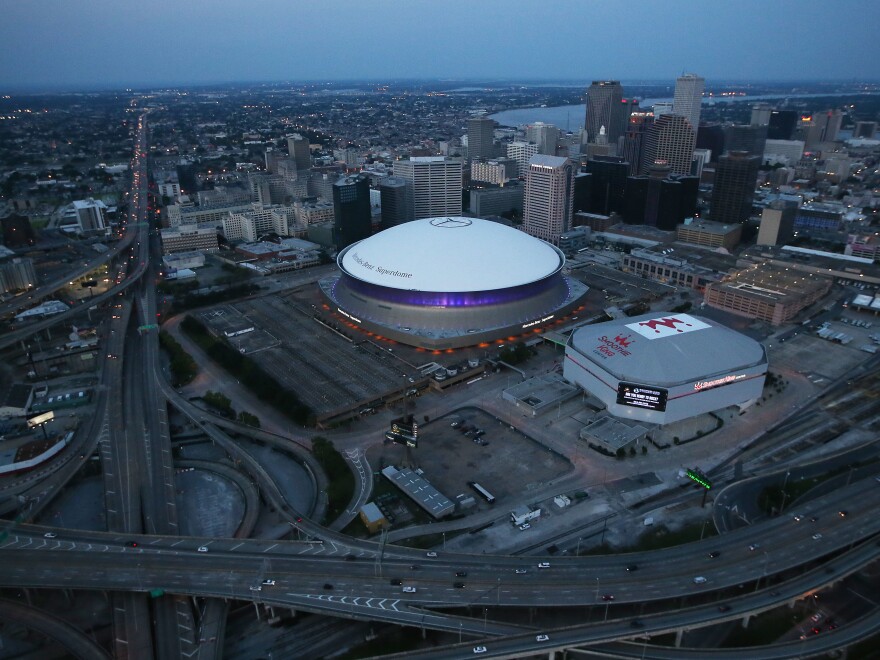Around this time 17 years ago, Hurricane Katrina bore down on New Orleans, and permanently changed life for thousands of people across the country.
The hurricane caused billions of dollars of damage to the city, and killed thousands. Many thousands more were displaced, and forced to leave everything they had ever known behind.
For filmmaker Edward Buckles, Jr. this experience is still something that he is trying to heal from. Buckles Jr. experienced the tragedy firsthand when he was only 13 years old, and his new documentary Katrina Babies questions the response that many children, like himself, were left waiting for.
He joined All Things Considered to discuss the project, and how it is the first step towards healing for so many who have not gotten to share their stories.
This interview was lightly edited for length and clarity.
Interview Highlights
On how the storm impacted his own family and community
I've been speaking to my cousins way more now, and we've been gathering and planning family trips, and we've been in a group chat, just really rebuilding what we lost from Hurricane Katrina.
My cousin Quentin lost belief that his life mattered. At that moment, at 11 years old. And when he said that, I learned so much about my cousin and so much about how Katrina impacted what he was putting out into the world.
So, yes. At age 11 years old, he decided, "I would never fight for his country." And that speaks volumes, because, that doesn't just mean that he doesn't want to join the army or something. That means that he doesn't have trust in his country.
I have to say that that line, "I would never fight for his country" was followed by him saying, "We wasn't in here for a day. We was locked in our attics for three days." And that line was followed by his mom saying, "When everybody else in the world thought that New Orleans was good, we were still in our attics."
So what does that do to trust? What does that do to one's belief in their lives mattering? And just to be honest, I don't think that he's the only person that feels that way. They may not articulate it the exact same way, but a lot of us are dealing with trust issues when it comes to America.

On how to begin healing from trauma that is so compounded
I didn't go into this film trying to find healing, honestly, because I didn't know that it was possible. I didn't know that simply having conversations and starting to tell our stories would be healing.
Miesha is one of my best friends and she is a subject in the film. She is the first person that breaks down in this film and says, "No one ever asks me about my story." And I realized that we weren't just dealing with people telling their stories. We were dealing with people healing.

This film is not going to heal everybody. This film has not healed me. But it has opened up a door for me to figure out, "Okay, what does that journey to healing look like?" Because we are not just healing from Hurricane Katrina, we are healing from everything else that we have experienced before the storm and after the storm. And I just want us to know that we can start that journey.
On the lack of infrastructure and support for children impacted by Katrina
It's a question that I have been asking myself during this whole process. I don't know the answer, but I am only led to assume, and God, I hope that I'm wrong. But it is the lack of empathy. It is the lack of care. And it is the lack of respect for Black people in this country. Specifically speaking from experience, Black children in this country,
I proposed this idea in the film of the double-edged sword of Black resilience. Yes, we are resilient. Yes, we take pride in our strength. But on the other side of that, is us being viewed as not needing the same help that other people need, because of the fact that we are so strong and we are so resilient. I think that people will like to look at them, "Oh they're good, they're bouncing back. New Orleans is rebuilt. New Orleans is coming back. They don't need anything. Look at that."

And I think because of that way of thinking, we always miss out on our opportunity for wellness and healing and our opportunity for proper help and assistance once we experience something traumatic.
On what New Orleans was like before Katrina
At the end of the film, I say that New Orleans is not rebuilt. And some people will look at [New Orleans] like, "What do you mean? Businesses are thriving, y'all doing great down there?" And what I mean is that they are not the New Orleans that we knew. The real New Orleans.

The New Orleans that was filled with families, the New Orleans, where all you really saw was Black people. We were in our neighborhoods, and we owned our neighborhoods, and we took pride in our neighborhoods. I just want people to know that when they're coming through to New Orleans and when they are experiencing all of this great culture and all of this great magic and beauty, that it comes from us. It comes from all of the people who were here before the storm, some of us who are still there after the storm. That's what I want people to know, is that everything that you love about New Orleans comes from us.
Copyright 2022 NPR. To see more, visit https://www.npr.org.




